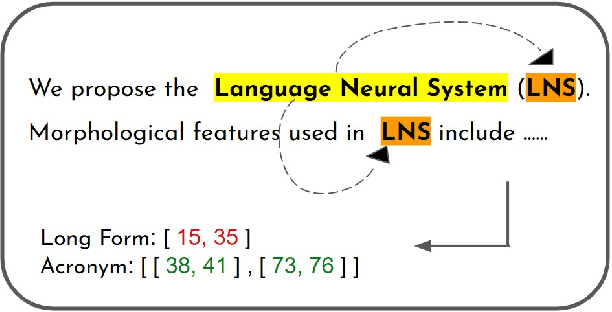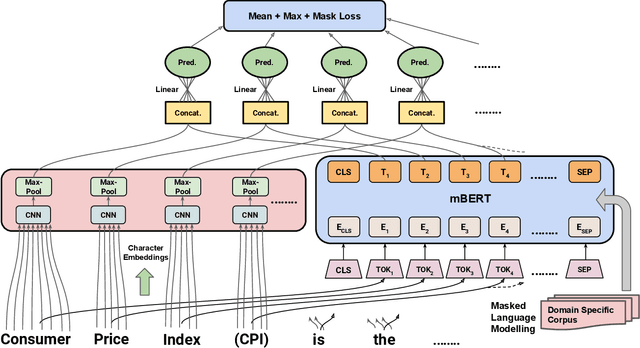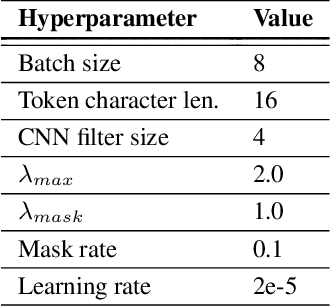CABACE: Injecting Character Sequence Information and Domain Knowledge for Enhanced Acronym and Long-Form Extraction
Paper and Code
Dec 25, 2021



Acronyms and long-forms are commonly found in research documents, more so in documents from scientific and legal domains. Many acronyms used in such documents are domain-specific and are very rarely found in normal text corpora. Owing to this, transformer-based NLP models often detect OOV (Out of Vocabulary) for acronym tokens, especially for non-English languages, and their performance suffers while linking acronyms to their long forms during extraction. Moreover, pretrained transformer models like BERT are not specialized to handle scientific and legal documents. With these points being the overarching motivation behind this work, we propose a novel framework CABACE: Character-Aware BERT for ACronym Extraction, which takes into account character sequences in text and is adapted to scientific and legal domains by masked language modelling. We further use an objective with an augmented loss function, adding the max loss and mask loss terms to the standard cross-entropy loss for training CABACE. We further leverage pseudo labelling and adversarial data generation to improve the generalizability of the framework. Experimental results prove the superiority of the proposed framework in comparison to various baselines. Additionally, we show that the proposed framework is better suited than baseline models for zero-shot generalization to non-English languages, thus reinforcing the effectiveness of our approach. Our team BacKGProp secured the highest scores on the French dataset, second-highest on Danish and Vietnamese, and third-highest in the English-Legal dataset on the global leaderboard for the acronym extraction (AE) shared task at SDU AAAI-22.
 Add to Chrome
Add to Chrome Add to Firefox
Add to Firefox Add to Edge
Add to Edge